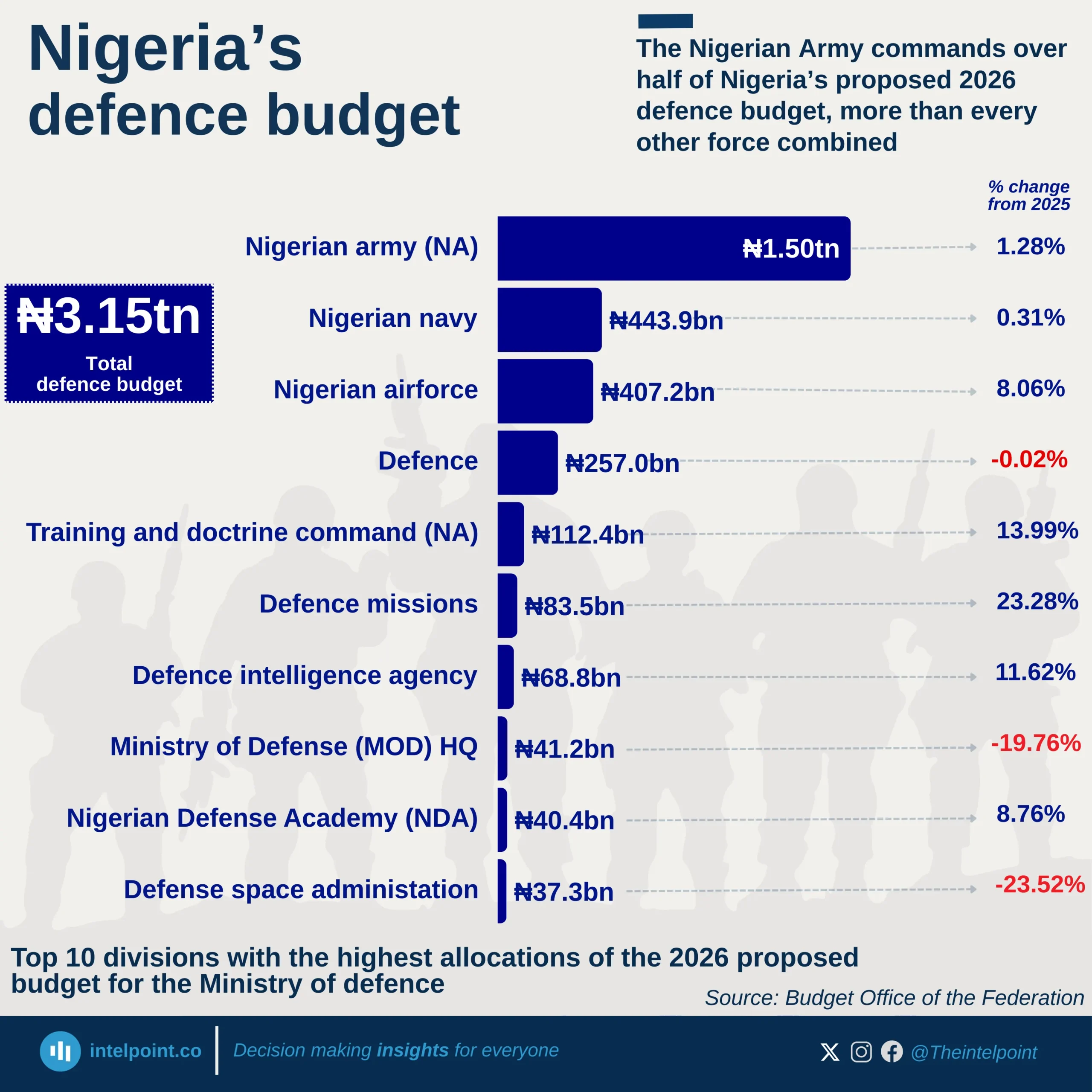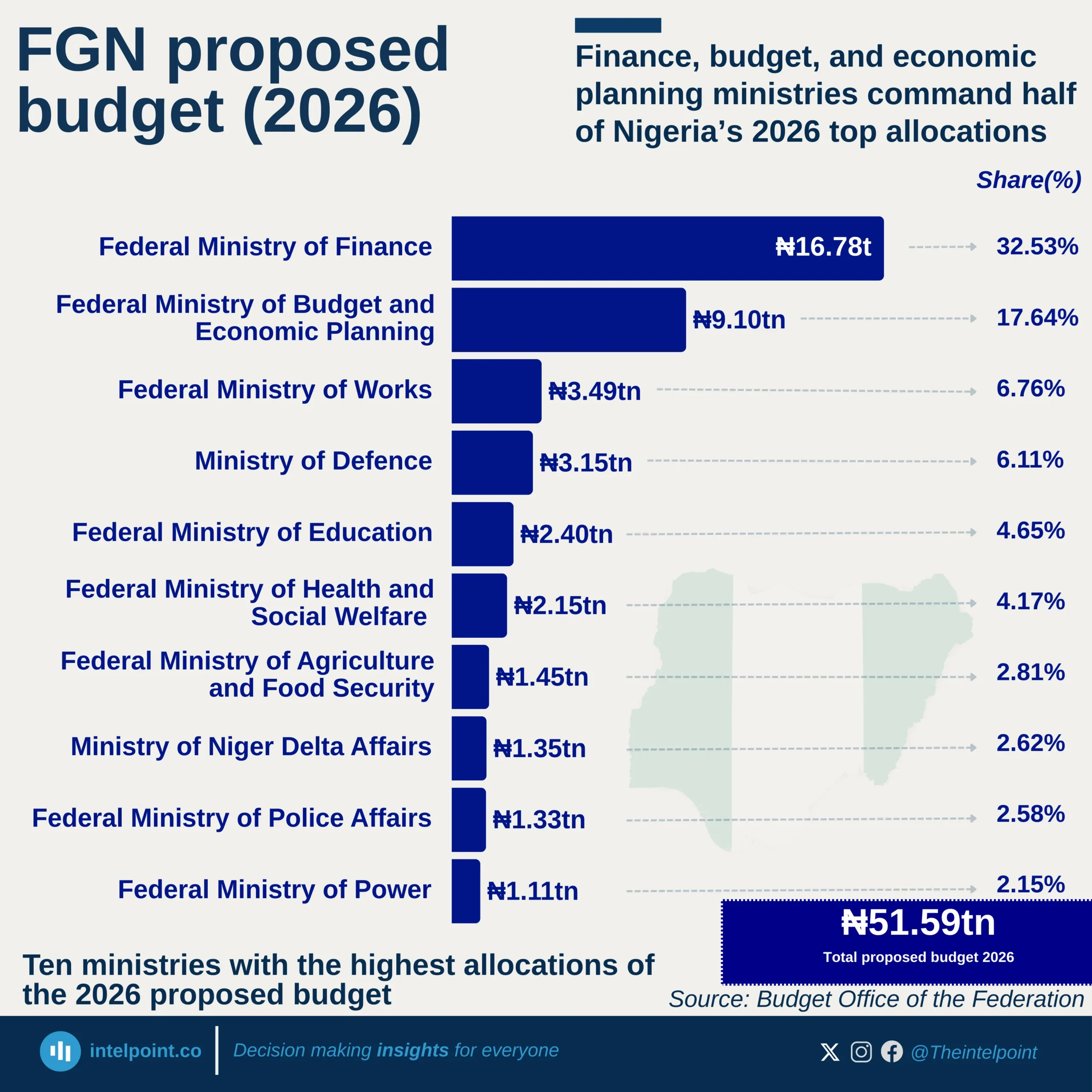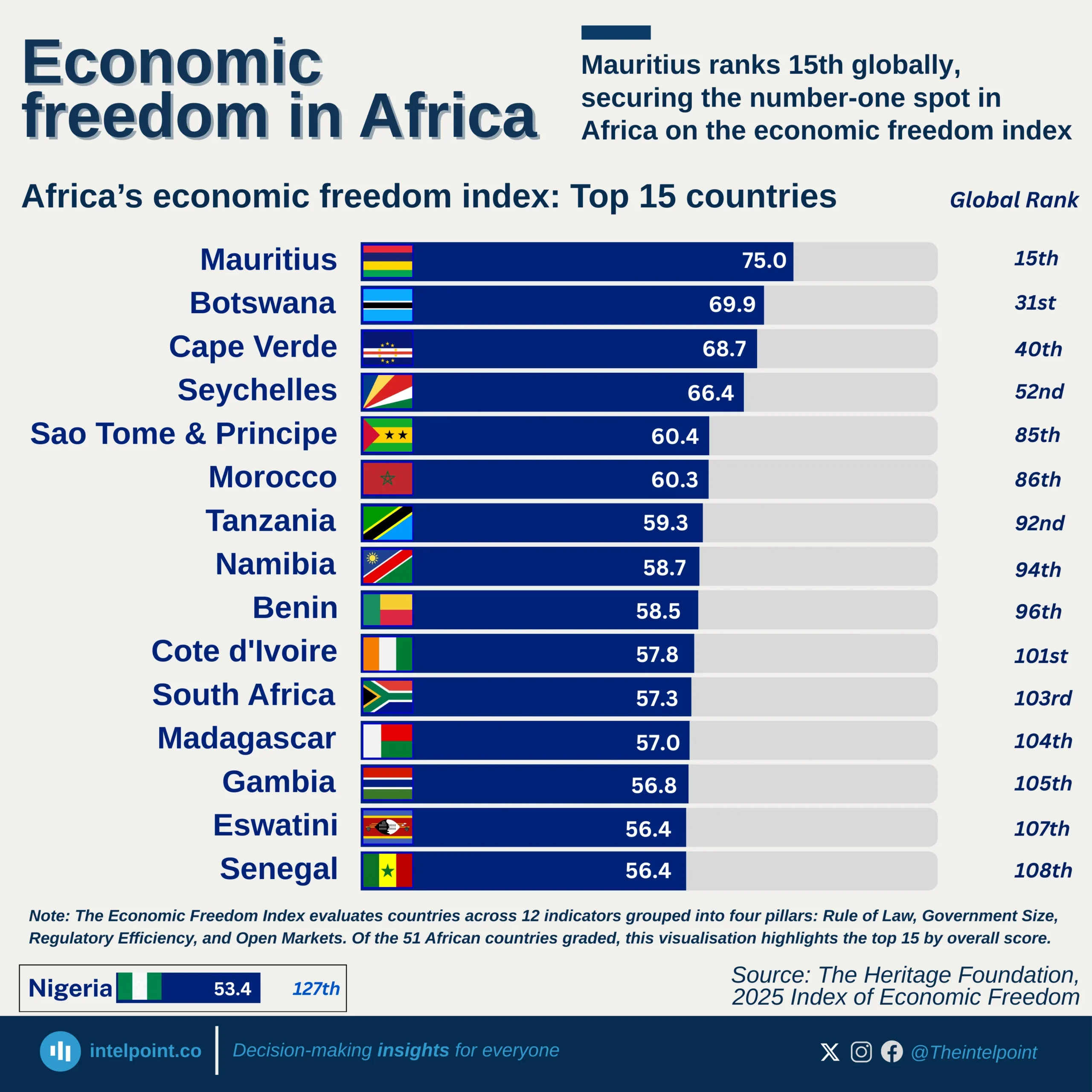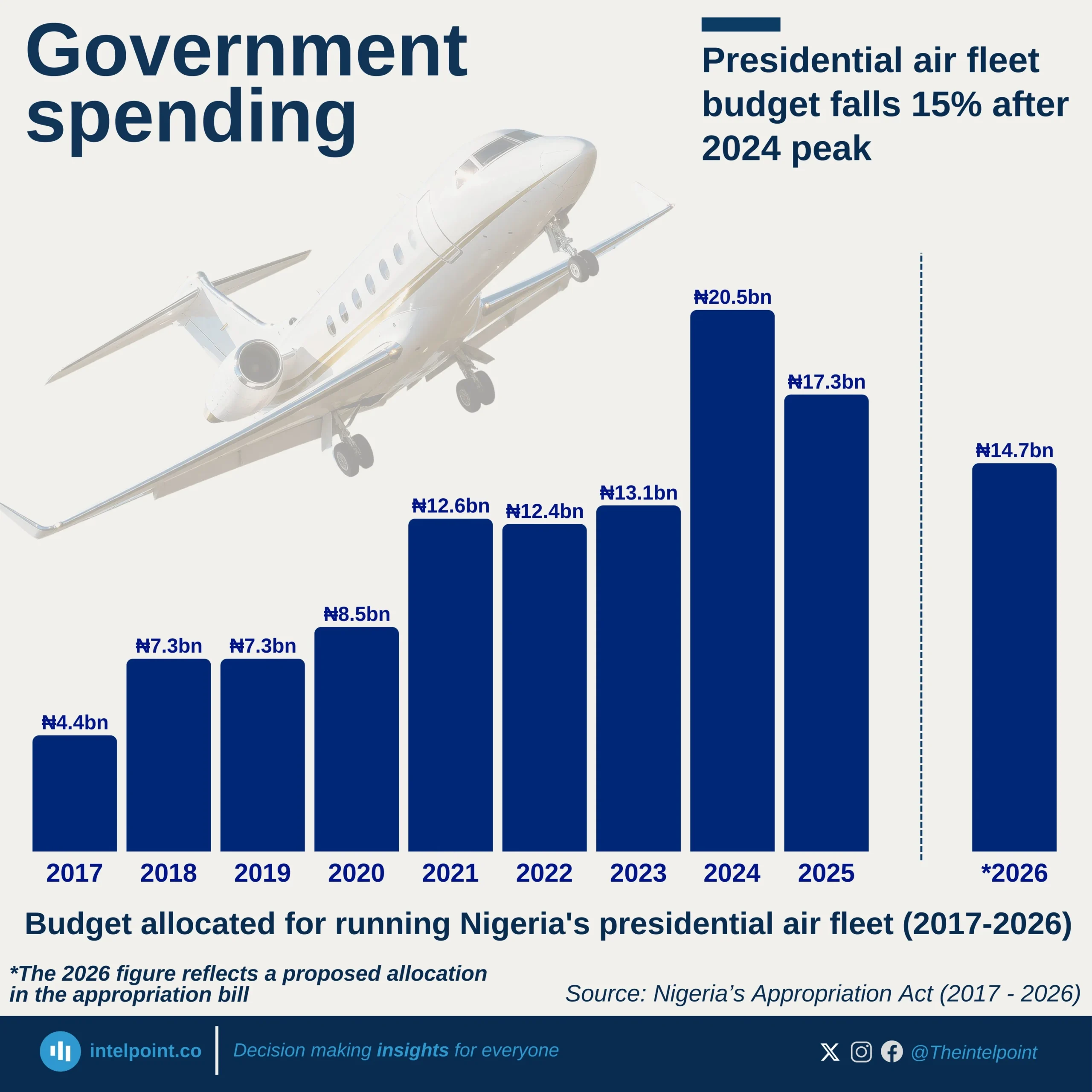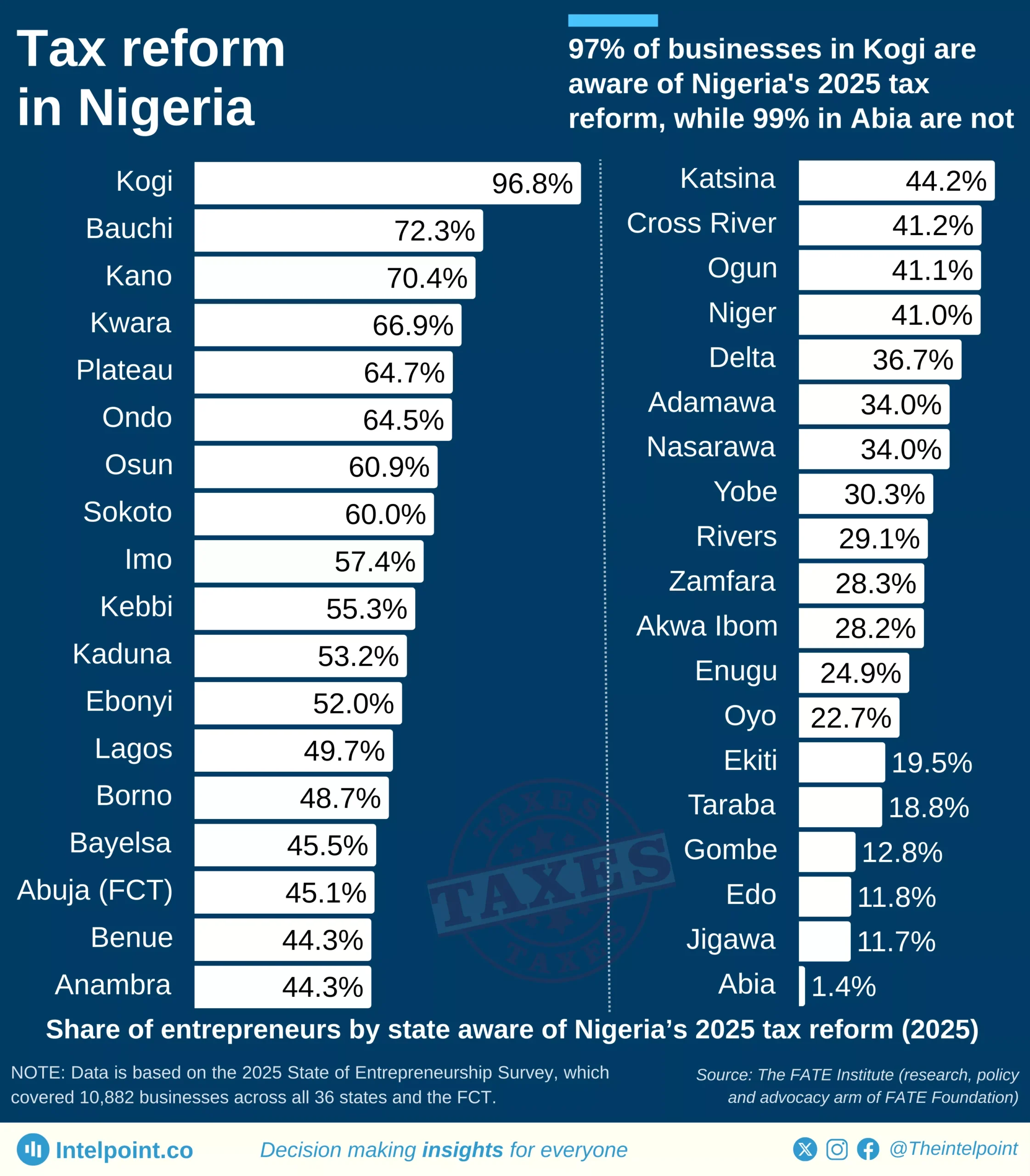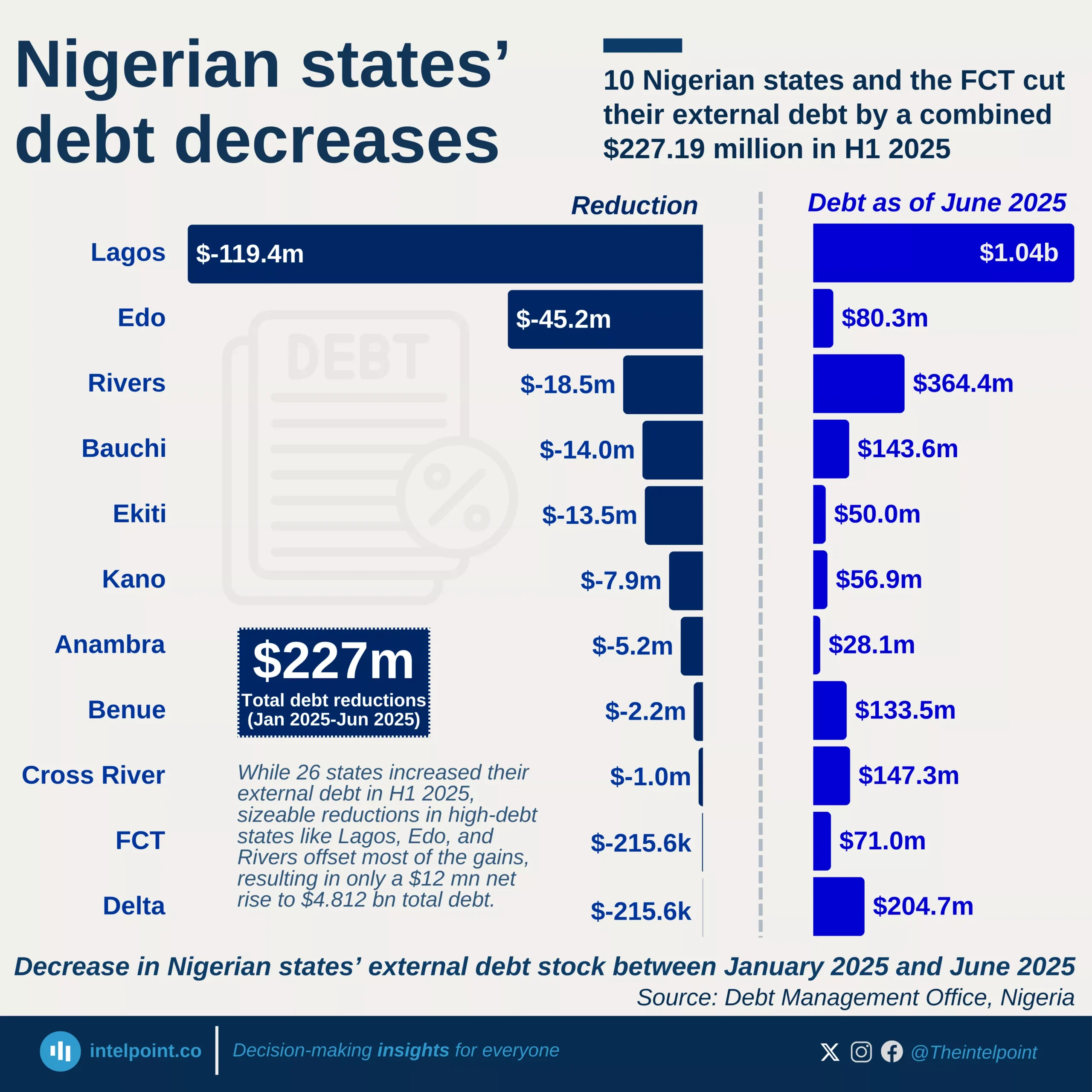Over the past three decades, one African country kept coming out on top when it came to how much each worker adds to the economy, and that country was Gabon. Among over 50 nations tracked, Gabon led the continent for 21 different years in GDP per person, driven by its oil sector and a relatively small workforce.
Equatorial Guinea wasn’t far behind, taking the number one spot 12 times, particularly during its early 2000s oil surge. Libya, while never topping the list, claimed second place for 18 years, showing consistent strength before political instability disrupted its trajectory. Algeria and Egypt were also regulars in the top three. But then there’s Nigeria, Africa’s most populous country and now its fourth-largest economy. Despite its size, Nigeria never entered the top ranks for worker productivity. Year after year, it sat outside the top 20, reflecting the challenges of a large informal sector, underemployment, and slow structural reform.
In this data, the message is clear: size alone doesn’t drive productivity. The countries that led weren’t always the biggest, but they were the most efficient at turning work into economic value.
